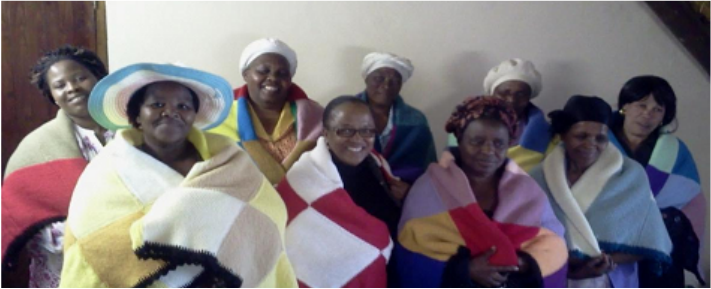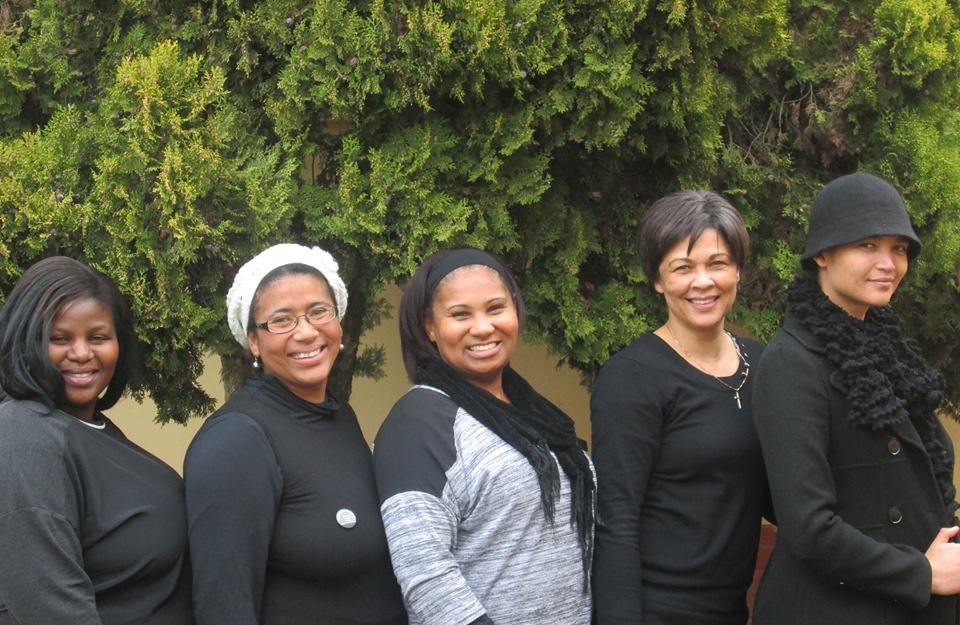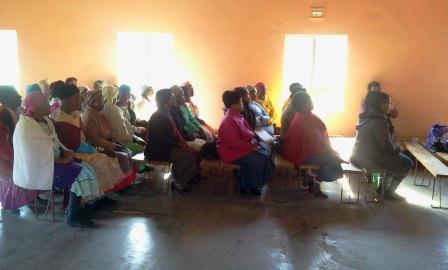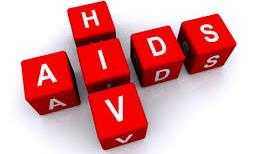|
Zoe Gwala, of TWR-SA, shares: “My mother actually started it! One day we were chatting about Umyezane, a group that she heads up. ‘Zoe, so many widows!’ she commented. Of course, as I work on the women’s programme at Trans World Radio South Africa, I asked her a bit more about the group, and discovered that there were 150 widows who met once a month. I was shocked at the number of widows in this very small community in rural KwaZulu-Natal and pressed her for more details.”
Umyezane is a group of widows who support each other through prayer, food parcels, skills and encouraging each other to stand up and do something in their community that can help other widows too. Zoe was curious about the need for this group in such a small community, so she visited Molweni and spoke to the Umyezane ladies. What she learnt prompted her to find out more about the reality of widowhood in other villages too. The term “widow” is a name assigned to any woman whose husband has died. In the Zulu culture, widowhood entails a reposition within society. Both cultural practices relating to widowhood and cultural views on widowhood serve to create an entirely new identity, role and position for the widow within her community and broader society. Culturally, when a woman marries, she becomes part of the husband’s family. When he dies, his possessions revert back to his family and not to his widow and children. And all major decisions revert back to the family, including burial arrangements and inheritances. Society expects that the costs of the death and burial be carried by the widow; in cases where the deceased was working, it is assumed that the widow has money. Death expenses are not limited to the funeral. For example, a widow is expected to erect a tombstone for her husband one year after his death, at a cost of up to R6000. Sometimes this is done without any financial assistance from her dead husband’s family. Cultural beliefs state that the soul of her husband will haunt her otherwise. Practically, the widow is physically isolated, with people avoiding her after the burial. One widow shared “...after the burial you don’t see a single church member coming to visit. You are left in a very, very lonely situation”. Many widows confided that this isolation was the most torturous experience they have ever gone through. Widowed women are also not allowed to talk to their neighbour’s husbands. Previously close friendships have to be pushed to a certain distance because of the change in marital state: phone calls must be shortened, the widow may no longer visit in her neighbour’s homes, or spend extended time with her married friends. Further research showed that in the five communities Zoe visited in KwaZulu-Natal, including Molweni, 80% of widows are unemployed, are age 36 or older and have been widowed for more than 6 years. These women support on average three to five children each, as well as their immediate family and, very often, five or six grandchildren too. Widows in South Africa currently do not receive any financial support from government but have to apply for disability grants or old age pensions when they reach the required age. There is minimal family or community support for widows in terms of their practical needs, let alone their social or psychological needs. This affects children tremendously. Reacting to the loss of their fathers, 20% of the children of widowed women in the five villages we interviewed end up dropping out of school. Beyond the everyday challenges of raising children in an unstable environment, these mothers struggle to maintain discipline and respect. A high percentage of children engage in destructive behaviour like verbal abuse, acting out, using drugs and alcohol, joining gangs, crime and teenage promiscuity. Why are there so many widows in just five communities? TWR-SA learnt that the majority of husbands (68%) died because of medical reasons (illness, heart attacks or disease), 14% through accidents and 18% through murder/witchcraft. Many women shared how their husbands had been sick for a long time but refused to go for treatment, fearing stigma or shaming by the community and elders. Death and the dead are a topic that are not easily discussed by the Zulu. People are hesitant to address and confront cultural practices. Yet, as the TWR-SA team walked dusty roads and met with these often-stigmatised and ignored women, again and again they poured out their stories. Whilst researching the reality of widowhood was the focus of Zoe’s research, the result of meeting with widows was actually healing. Zoe shares: “It was amazing to see the release of emotion as widows were at last recognised, listened to and affirmed by our visits. In this holy space, many women requested prayer, found a new peace and, with rekindled hope, committed their lives to follow Jesus.” ---- Article written by Kerry Feldman, SALT Alliance, in collaboration with Zoe Gwala. Research conducted by Z. Gwala and D.Du Preez, TransWorld Radio South Africa. Note: Zoe Gwala heads up the women’s programmes for TWR-SA. She is married to Petros, has two children aged 9 and 4, and has been involved in mentoring, church leadership and women’s outreach in the Valley of a Thousand Hills for more than 10 years now. As a result of the research in the Kwanyuswa, Molweni, Shongweni, Inchanga and Mbumbulu communities (representative as a random sample of villages in KwaZulu-Natal, South Africa), TWR-SA started developing a coordinated response to the needs of widows: 1. Support groups have been started in each of the communities, helping widows to encourage and support each other, get organised, start food gardens to feed their families and find employment through basic skills training opportunities. 2. Widows were identified who were suffering and required immediate support: a monthly food parcel is now delivered to each home to alleviate hunger. 3. Workshops that address loss, grief and trauma have been developed and are available to widows within their communities. 4. TWR-SA has developed radio programmes that are broadcast to local communities: these broadcasts share the obstacles that widows face, encourage widows to start self-employment opportunities, address the issues of self-esteem/loss, and challenge communities/churches to care for their widows.
1 Comment
Thursdays in Black in the West Coast! Mfesane has joined the Thursdays in Black campaign which encourages everyone to wear black every Thursday as a sign of strength and courage. , showing our support to victims of violence and rape around the globe.
This campaign is all about advocacy and solidarity against all forms of sexual and gender based violence. The website www.thursdaysinblack.co.za holds chilling stats on South Africa's victims: Human trafficking is a reality in SA SA's rape statistics Salt Alliance member TransWorld Radio shared the story behind this lovely photo.
The women in the picture are rural women in Kwa Nomoya next to Msinga. These women are a representative of the challenges faced by rural women. Their husbands have gone to cities and urban areas to look for employment and may either come back with Aids to infect their wives or never come back because of marital unfaithfulness. This has caused many homes to be fatherless, hence problems of discipline and poverty. But these women save R2.00 every day, set it aside and once a week meet together. They collect their R10.00 (approx. U$1.00) in groups and save the money. Through this empowerment they have started their own bank where they are able to loan each other, pay school fees, extend their homes and do many other things they were not able to do before. TWR was able to mobilise donors who donated two brick-making machines so that the women of Kwa Nomoya can start a self-sustainable income and develop the community. Once a week, as seen above, the ladies receive Biblical Radio programmes in a form of a listening device from TWR, and form group discussions and share stories of how the programmes transform their lives. In 2006, Ella was living with her husband of 3 years and their small baby was just 3 months old. Constant diarrhoea after the birth meant Ella started becoming weaker and weaker. Eventually Ella moved to her mother’s house because she couldn’t care for herself or her baby. Visits to a local clinic and pills to relieve the diarrhoea did not help. Ella went to doctor after doctor. After 5 visits to special doctors, there was still no relief from the diarrhoea. Finally, Ella’s younger sister suggested she should go to the clinic to test for HIV.
After the test at KwaMhlanga Hospital revealed that Ella was positive for HIV, she was asked to return in 3 weeks so that her CD4 count could be checked. CD4 cells are a type of white blood cells that fight infection; the CD4 count measures the number of cells found in the sample of blood drawn and is used to measure the strength of the immune system. The average healthy person has a CD4 count of 700-1200. By this time Ella was so weak she was unable to even walk. Ella’s sister carried her to the clinic where they discovered that her CD4 count was only 12. Because Ella’s CD4 count was so low, she could not take Anti-Retroviral (ARV) medication. Instead, the nurses at the clinic gave Ella boosters with vitamins for two months to help get her health and strength up. When Ella at last started ARVs she suffered from side effects and became ill once again with diarrhoea and vomiting. The pills weren’t even digested as Ella couldn’t keep any food in her body. Ella’s sister came to Nakekela to find out if there was a bed available, and after hearing her story, Sr. Emma visited Ella to find out what the problem was; within a week Ella was admitted to Nakekela. To combat the diarrhoea and vomiting she was given her ARV tablets crushed in porridge, which helped to coat the stomach and assisted in reducing the side effects of the drugs. Slowly, Ella was able to eat again and start treatment. Upon admission Ella could not walk or talk. She was too weak to do anything but lie in a bed. Even sitting in a wheelchair required so much effort that Ella had to miss out on the weekly Bible studies and craft sessions. The Nakekela team made sure that she was not excluded: care givers kept coming in to check on her and take her vitals and even the kitchen staff detoured to visit and chat to her. Ella remembers that Babette came in every morning before she went to her office to see how she was doing. Ella believes that the love and care she was shown contributed to her recovery. During this time Dr. Sonja wrote a letter to the local clinic asking that they test Ella’s small child for HIV. Ella’s mother brought the baby to the clinic and tested, and the staff all praised God that the baby was not positive for HIV. Once Ella started to feel better she requested that she be allowed to start caring for herself. Overcoming challenges like walking to the toilet and bathing herself gave Ella purpose; she knew that if she could do these simple things she would be able to go home and be strong again. On the day Ella was discharged, she was determined to walk home instead of getting a lift in a vehicle. Babette walked home with her. When Ella arrived home, her family were overjoyed to see her. They could not believe that she was healthy again and phoned neighbours and other family members to come and see. Every Thursday, Ella received a vegetable package to help with food and make sure she was receiving the nutrition she needed while taking her medication. Home Based Care workers also came to visit her at home and to make sure everything was going well and that she was eating and taking her medication properly. When Ella had recovered her full strength, she began visit Nakekela and find out if she could get a job there. She wanted to help other people that were faced with the same situation. In 2012, Ella was hired as a Home Based Care worker. Today Ella’s eagerness and zeal to help sick people urges others on to fight the battle against HIV/AIDS. She frequently phones in about new critically ill people to see if there are open beds at Nakekela. Ella loves to educate the community about HIV and how to prevent it, and to give hope to those who suffer from the devastating effects. Despite rejection from her husband, Ella is still an optimistic person passing on her enthusiasm to others and encouraging us to press on in our work. Ella’s CD4 count has increased to 850 through her conscientious determination to take her treatment correctly and to eat a healthy diet and live a healthy lifestyle. She is very proud of her 6-year old child has started Grade 1 this year. |
SALT Alliance NewsStories from the field Archives
November 2020
Categories |





 RSS Feed
RSS Feed